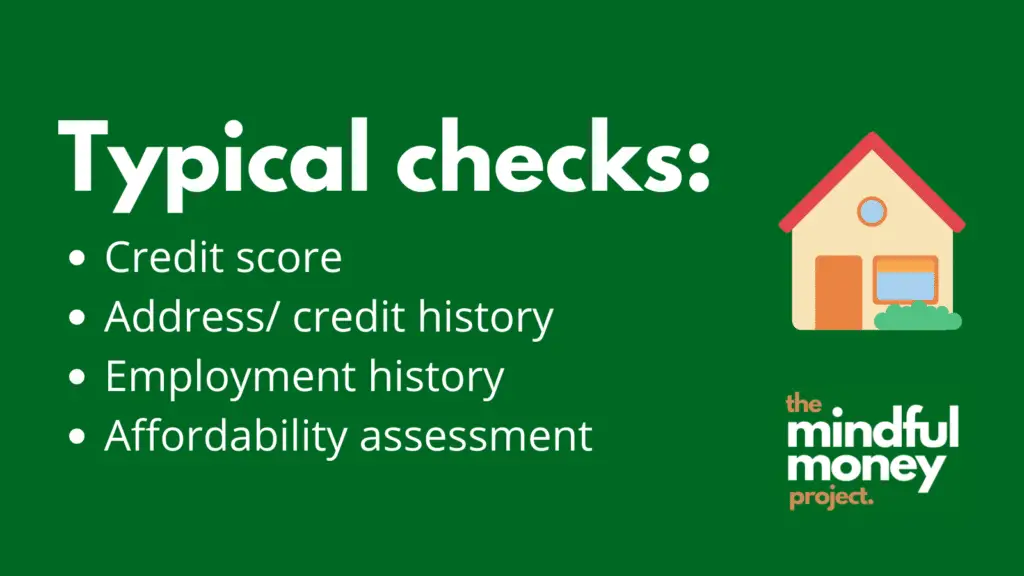It seems you have to jump through a million hoops to get a mortgage nowadays. Watching my brother complete his first property this week highlights just how stressful the process can be (he’s certainly lost a bit of hair since they started the process). Some people go as far as saying it is more stressful than getting a divorce! One of the more common questions when looking to buy a property is “how long do you need to be employed to get a mortgage in the UK?”.
I empathise. I’m in the same boat. After having some success saving for a house deposit in a year, I’m looking to move jobs and buy a house all within a few short months of each other. As a result, I’m deep in the weeds on this one.
It is worth noting though that I am not a mortgage adviser and nothing in this article constitutes mortgage advice. I recommend booking an appointment to discuss your situation with a mortgage adviser or mortgage broker who will be able to help you through the process.
How long do you need to be employed to get a mortgage UK?
3-6 months is the short answer.

However, this varies by lender. Some are happy with a signed, permanent contract. Whereas others need up to 3 years. Generally speaking, longer is better in the eyes of a lender.
Longer answer
The longer answer is a bit more nuanced. As each lender has different lending criteria depending on their risk tolerance. This means there is no hard and fast rule.
Some are happy with just a signed, permanent contract.
Some require you to be out of your probation period with your employer (this tends to be 3-6 months).
And yet others, such as some high street lenders, require up to 3 years’ worth of history in the same job(!).
Why does it matter how long I’ve been in a job?
Helps to show how stable your income has been over a period of time
A longer period with one employer shows you have a stable income stream.
Redundancy protections kick in after longer periods of employment
In the UK, statutory redundancy pay only kicks in after 2 years of service. For cautious banks who are trying to reduce their credit risk (risk of not getting their money back), they may partly use this fact to set the level at 2 years.
Why? If employees with less than 2 years’ worth of tenure don’t get statutory redundancy pay, the cynic inside me is telling me that these are the employees who have a higher likelihood of being made redundant (of course, this is not always the case).
Signals a level of stability
Banks love to see stability when assessing mortgage applications. If you’re moving jobs and location regularly, it won’t look as favourable as someone who has been in a more stable job and stayed in the same location for a while.
Provides insight on whether you are in your probation period or not
Related to the stability of your income again. If you’ve been in your current role for longer than 3-6 months, it tends to signal that you’ve passed your probation.
The probationary period is the time where your employer can terminate your contract much easier than once you’ve passed it. As a result, this period is considered a risky one in the eyes of banks as your main income stream could be cut off unexpectedly. This would have an impact on your ability to service the mortgage payments.
Why does the length required differ between lenders?
A mortgage provider is in the business of managing risk. Specifically the risk of their borrowers not being able to pay the money back (credit risk).

What does this mean?
Their whole business model is built around lending money. They then earn interest on the money they have loaned. This money trickles in each month as each mortgage payment is received.
The risk to the banks is if someone can’t pay (called credit risk). Not being able to repay the money loaned via their monthly repayments represents a much bigger loss to the bank than the gain of, say, 3% a year in interest on the money they did loan out.
Therefore for a bank to be, and remain, profitable, they need to manage this risk.
If they take on too much risk, and the number of people who they have made a loan to go into default (which is when a borrower can’t service their monthly loan payment), then the costs will far outweigh the income they receive from their mortgage.
At the same time, having these constraints in place isn’t all bad. Look at what happens when they aren’t.
By assessing against their own criteria and risk tolerance before giving out a mortgage offer, they are also checking your own ability to afford the mortgage repayment each month.
This is in addition to seeing how well your finances might be able to deal with external factors such as interest rate increases.
How do banks manage this risk?
There are a few ways they tend to keep the risk low.
- mortgages are asset-backed
- stringent checks on the applicant
Mortgages are asset-backed
Mortgages are secured loans. This means they are secured against an asset as collateral. In the case of a mortgage, this is against the value of your property (the asset). If the borrower is unable to keep up with repayments, the bank repossesses the property and sell it on – thus recouping their loan (or at least most of it).
As a result of this structure, mortgages tend to be one of the cheapest forms of finance you can get. This means the interest rate tends to be pretty low.
These are much cheaper than unsecured borrowing such as a conventional loan or credit cards, where no assets back the loans.

Stringent checks on the applicant
The other important way they reduce their risk is by conducting stringent checks on the applicant as part of the mortgage application process. And this is why you’re reading this article today!
They certainly tend to be thorough! My brother has recently completed on his first property, and it sounded insanely stressful. It looks like he isn’t alone, with some people rating buying property as more stressful than divorce(!).
Each bank is different and will specify requirements, criteria and parameters depending on how much risk they want to take on.
What does this normally entail?
This is the stage in your mortgage application where they tend to run a credit check and their individual lending criteria come into play.
This is typically where they look at:
- your credit score and credit history
- address history
- employment history
- affordability assessments
- bank statements to corroborate your income and assess spending as part of the affordability checks

You can give your finances a boost and improve your chances of getting through the affordability assessment by applying my COST method to your finances.
Length of employment matters
Generally speaking, a longer period of employment in one company will look more favourable on your mortgage application than being employed at a company for a shorter period. It shows the income stream may be more stable. Which is only seen as a good thing by a lender.
It does, however, vary by lender. Some will require more than 3 years with the same employer, whereas others are happy with just a signed, permanent contract.
But, this being said, there are certainly options out there if you are looking for a mortgage but haven’t been in employment for that long. There are some mortgage lenders who are willing to lend to people who haven’t been in their current job for that long. If you are a self employed worker or have your own business (maybe you have recently set up a limited company), then the bank will also require a little bit more assurance over your income stream compared to a more traditionally employed borrower. But that is out of the scope of this article.
Can you get a mortgage without a permanent job (i.e fixed term contracts or temporary contracts)?
If you tend to work on a fixed-term or temporary contract, then you may have a similar issue building up enough work history with the same employer.
I raised this with Habito when I was discussing my own situation, and they can help if you have a fixed-term contract that either has at least 24 months remaining on the contract or if you have a minimum of 12 months contracting history completed within the same field of work.
Similarly, you would be better suited to speak to other mortgage brokers to make sure you are increasing your likelihood of having an application accepted. They may recommend a particular specialist lender who helps in these situations.
What should I do if I haven’t been in my job for 3-6 months?
Wait until you have more time under your belt in your current employment
Ideally, at least 3-6 months. Due to the reasons discussed above, this can improve your chances of success.
Only change jobs after you have successfully bought a property
Generally, a longer period in your current employment looks more favourable. Therefore, if you know you are going to be buying a new property (and all of the mortgage applications that comes with it), then it might be worth delaying your job move until after you have completed the transaction.
Speak to a regulated mortgage advisor
They will be able to guide you through the process and help you apply for any specialist lender’s who can help. This will help maximise your chances of success.
I’ve been using Habito and have had a great experience with them this far.
Conclusion
If you’re buying a property and also considering taking on a new job, you’ve probably asked yourself many times; “how long do you need to be employed to get a mortgage in the UK?”.
Each lender’s criteria varies. They range from needing only a signed, permanent contract, all the way up to needing 2+ years with the same employer (not the same role!).
To improve your chances, you can consider delaying your application until you have the minimum 3-6 months criteria. Or alternatively, consider delaying your job move until your property purchase has been completed.
Regardless, speaking to a mortgage adviser, like Habito, will maximise your chances of finding the right mortgage deal which increases your chances of a mortgage approval. Even though I am not yet able to pull the trigger on my own mortgage via Habito, my experience of them at this stage has been positive. I love the fact you can get hold of an adviser quickly and easily via their site to help with any questions I have.
I hope this article helped you to answer the question “how long do you need to be employed to get a mortgage in the UK?”.
FAQs
Chip vs Moneybox: Which One Can Grow Your Wealth?
With some great innovation in financial services over the last few years, we’re comparing two…
How To Cancel McAfee Subscription UK
Bored of your subscription or thinking of moving to a different provider? We’ve laid out…
Personal Profit is now The Mindful Money Project!
Hello there good reader! I’m proud to announce that I have re-branded my site. No…
Money Dashboard vs Emma? Does the underdog win?
Using an app can help automate your personal finances and keep you in tip-top shape….
How To Cancel Les Mills On Demand UK
Bored of your subscription or wanting to move to another provider? We get you. We’ve…
What are the benefits of budgeting?
Even the word “budget” may evoke a deep-seated sense of fear, anxiety and loathing, but…
Should I Save an Emergency Fund or Pay Off Debt?
Maybe you’ve been gifted some cash or come across a windfall. Or you’ve engineered yourself…
How To Cancel Graze Subscription UK
Bored of your Graze boxes or want to try a competitor’s version? We get you….
How To Cancel Unite Union Membership in the UK
Looking to cancel your Unite Union membership but unsure where to start? We’ve done the…











